A Guide to the Free Military Pass for U.S. National Parks
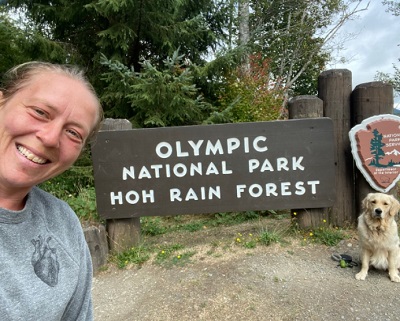
To thank those who served, the National Park Service partners with the Department of Defense’s (DoD) Operation Live Well initiative to provide free lifetime and annual passes to veterans, Gold Star families, and active-duty service members and their families.
Specifically, U.S. military veterans and Gold Star Families can utilize a free lifetime pass, and active-duty service members and their families can receive a free annual pass. Each pass provides access to over 2,000 recreation areas across the nation. Visiting these parks can foster several health benefits that can help warriors in their journey to recovery.
The Impact of the Outdoors
According to Matthew Laurie, Physical Health and Wellness coach for Wounded Warrior Project® (WWP), being outside has a massive impact on both mental and physical health. Matthew says exposure to sunlight can regulate a sleep schedule by helping to set the body's natural clock. The serotonin release also improves your mood and fatigue later (closer to bedtime). Sunlight can also reduce your blood pressure, and the vitamin D from the sun can strengthen your immune system.
“It’s a free form of therapy,” said Matthew.
Being outside in nature can also increase creativity, quiet the mind, decrease anxiety, and reduce stress by decreasing blood cortisol concentration.
“You’re not only getting the movement, you’re also getting that vitamin D that you need – especially if you’re living in those more northern states,” Matthew said. “But there’s also a strong cognitive, hormonal surplus we get from being outside, being in the sun, and moving at the same time.”
Matthew said these cognitive and hormonal impacts significantly influence issues like seasonal depression, which often occurs in the months with shorter days and, therefore, less sunlight. Being outdoors and exposed to the sun impacts how your body and mind handle the darker, colder months.
“Take advantage of this,” he said. “Think about it from this three-pronged approach of immunity, psychological well-being, and overall physical well-being.”
How Being Outdoors Helped a Warrior Strengthen His Relationships
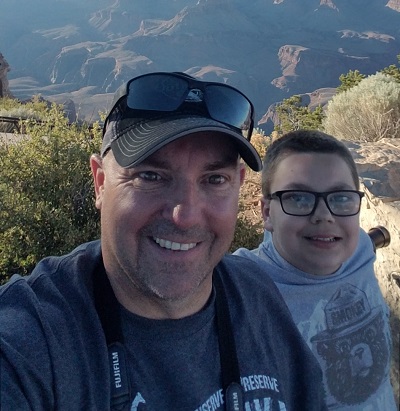
U.S. Marine Corps veteran Nick Bennett knows firsthand the impact the outdoors – specifically the national parks – can have on physical and mental health. They’ve allowed him to face physical challenges he didn’t know he could overcome, and they’ve provided him another way to connect with his family.
“Early on, when I got injured, I had a physical therapist tell me that I’d never run again. I wonder what he would say now, knowing that I’m on horseback, or I’m on some of these Soldier Rides we’ve done, or I’m hiking the national parks,” said Nick.
Not only did he use the outdoors as a safe place for getting active after his injury, but he’s also found that being outside has empowered him to rebuild and create strong relationships with his children.
Nick says they love going on adventures together, but it’s never about how many miles they hike. It’s about the laughs, the conversations, and the “no-phone zones” they have while they’re outside. He says not only do they get to talk about their days together, but they also have deep conversations they don’t get the chance to have otherwise.
His daughter, for example, heard the story of Nick’s injury during his deployment for the first time on a sailboat in the middle of Lake Michigan. Looking back on that day still brings him to tears.
“This isn’t just the Arches. And it’s not just, you know, the Grand Canyon,” said Nick.
The lifetime national parks pass for veterans also provides Nick and his family the opportunity to visit historical sites. He says these experiences have allowed him to share about his service and military background in a safe and educational setting.
Parks Provide Warrior with Newfound Comfort
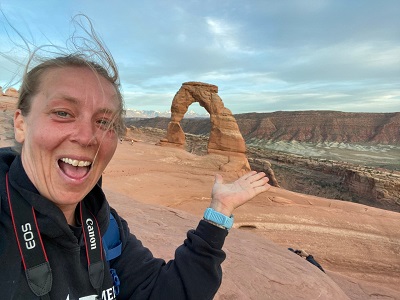
For Angie Peacock, national parks have given her a new life.
The Army veteran fell in love with the outdoors, the adventure, the travel. She now lives in a recreational vehicle, traveling the country, surrounding herself with nature in every way possible.
“It’s helped me heal,” said Angie. “You feel resilient. You feel like you can handle anything. You figure stuff out that you never thought you could.”
Angie says being outside regulates her sleep and gives her a sense of calm like nothing else in the world. In addition to the physical benefits, she’s found new hobbies and new friends along her journey. One of her first experiences in the national parks was birdwatching with a group of strangers – something she never imagined she would try and didn’t think she would even enjoy.
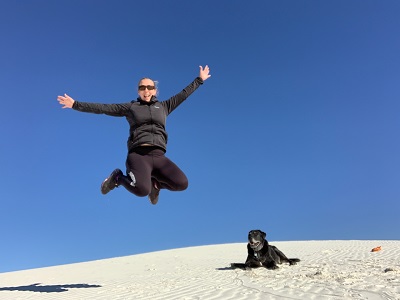
“It was just like a minivan with a park ranger and about six older people, and they gave us binoculars,” said Angie. “I got to learn something, and I got to meet other people who didn’t know anything about me. They weren’t asking about my experiences or my trauma. We were all just there, visiting together.”
This experience empowered Angie to set a goal to visit each national park, marking them off on her passport book one stamp at a time. She encourages everyone to participate in that part of the experience, too. Visitors can get a book to fill with park stamps at each of their own adventure stops.
“It’s truly a reward economy – it keeps you checking them all out. It’s so fun,” said Angie.
Where to Get Your Pass
You can order your pass here, and the U.S. Department of Interior will ship it to your home for a $10 processing fee. Or you can pick it up for free, in person, at sites that issue passes. Please note that your name will be printed on your pass if ordered online. If you are picking up the pass in person, you must present an accepted form of military ID listed on the website.
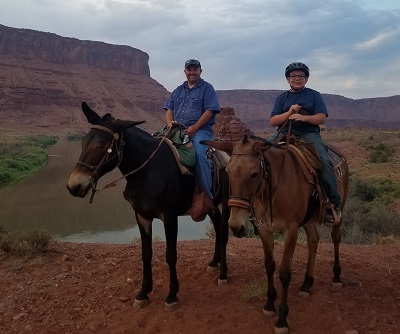
With these passes, the holder and all occupants of a single, private, non-commercial vehicle (or the pass holder and three persons above the age of 16) can be admitted at no cost.
Individuals with a disability can also obtain an access pass, and explore discounts for things like camping, guided tours, and more.
“Go find your limitations, and then go expand them,” Nick said.
Note: If you’re visiting the VA or DoD, more than 400 parks are nearby to explore across the U.S.
Learn more about the passes for those who served here.
Contact: Kaitlyn McCue, Public Relations, kmccue@woundedwarriorproject.org, 904.405.1342
About Wounded Warrior Project
Since 2003, Wounded Warrior Project® (WWP) has been meeting the growing needs of warriors, their families, and caregivers — helping them achieve their highest ambition. Learn more.